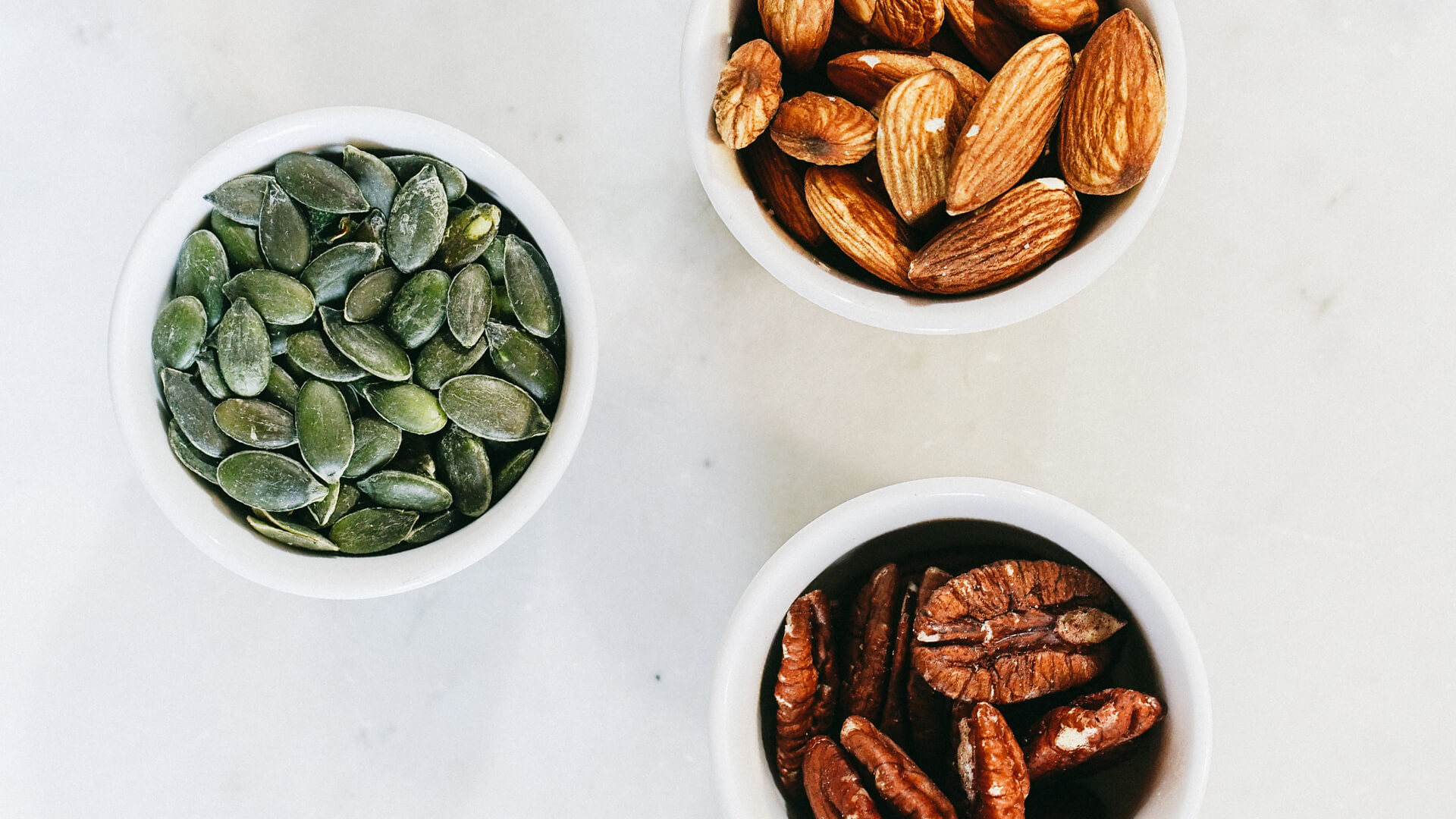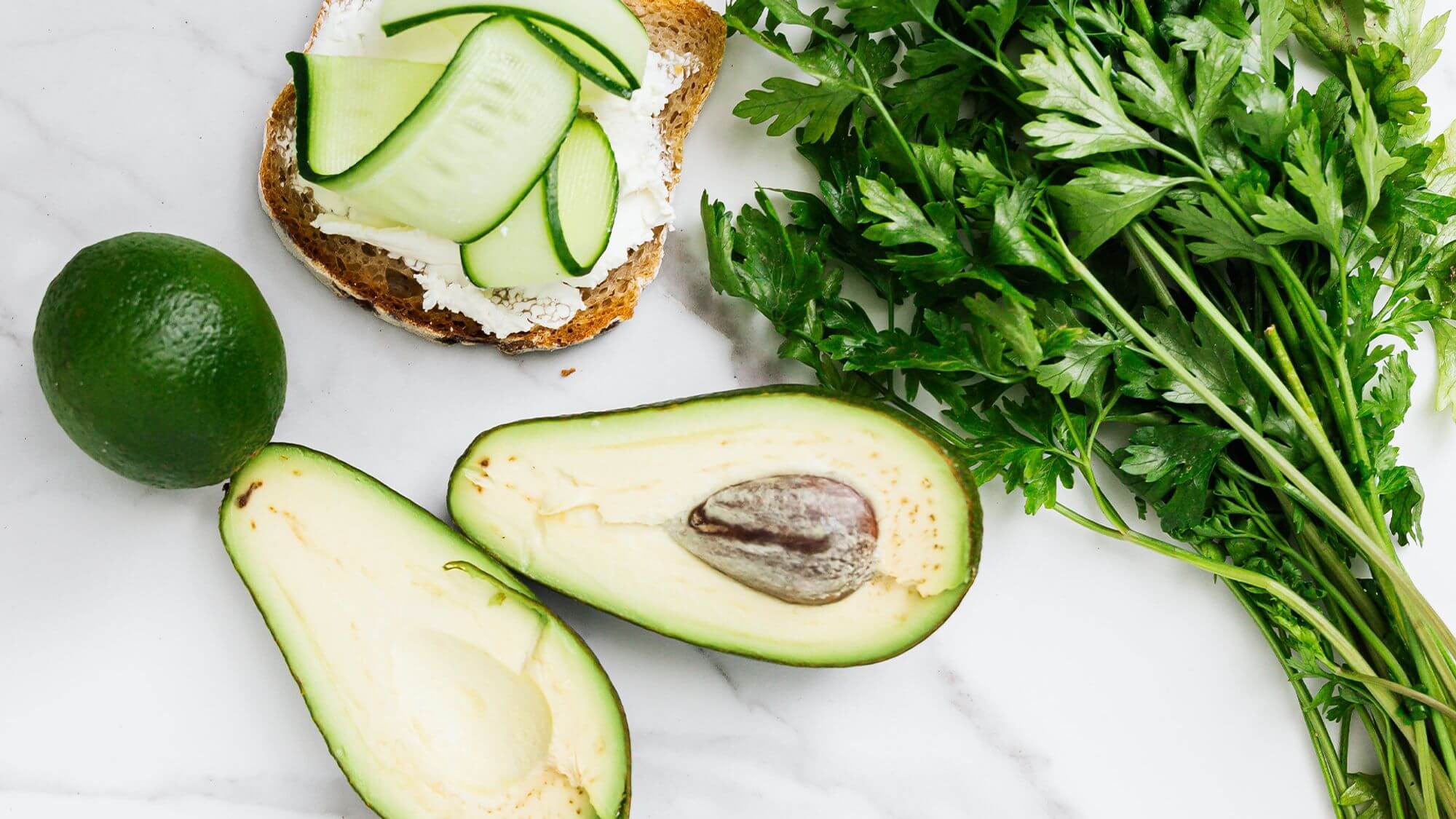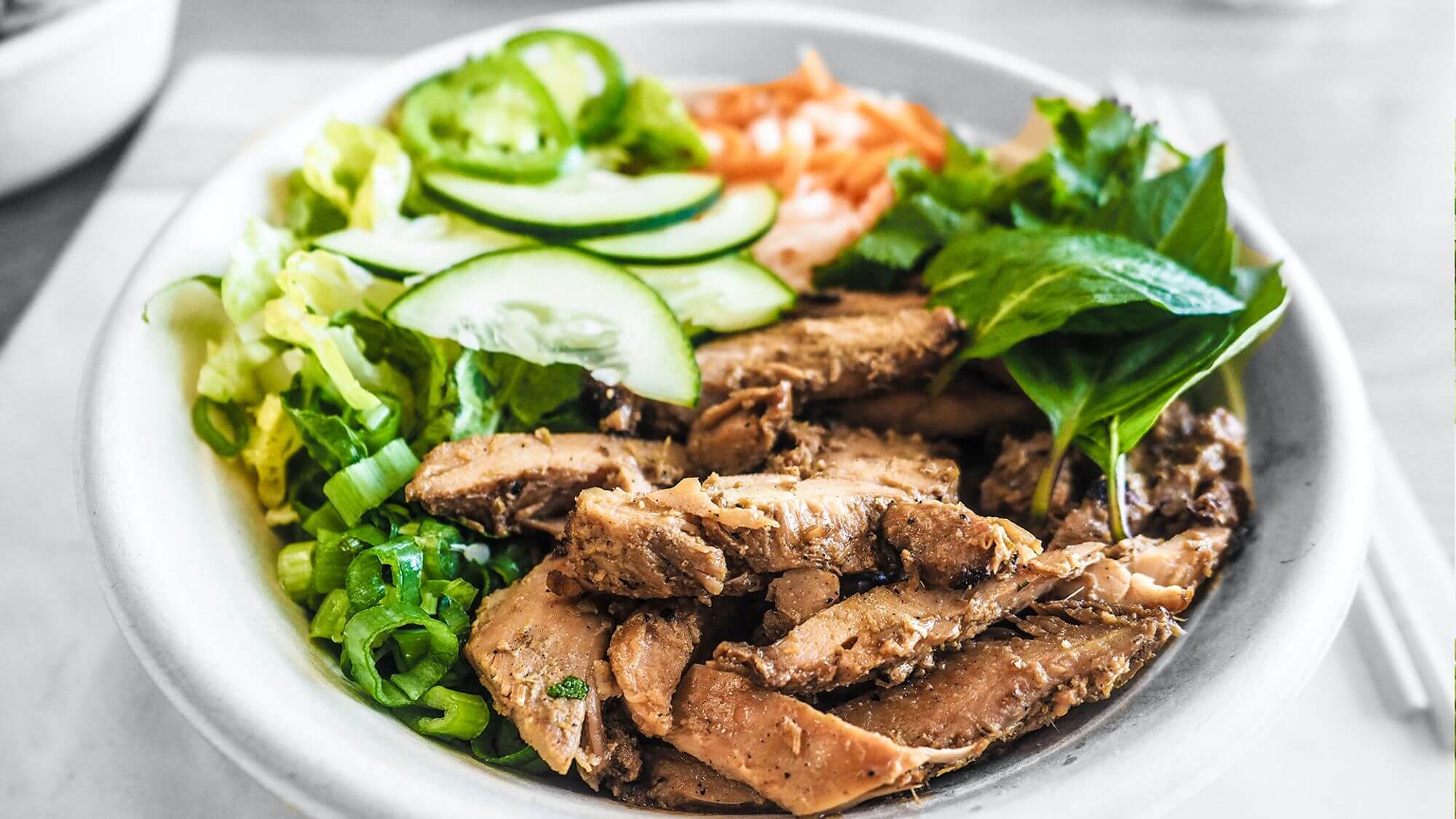If you’re constantly running on empty, you’re not alone. A YouGov poll found that one in eight UK adults feel tired all the time, while another quarter say they’re exhausted most of the time. Whether it’s the cold weather, long workdays, or just life being non-stop, low energy can make even the simplest tasks feel like an uphill battle.
The good news is that you don’t need endless cups of coffee or sugary snacks to stay awake, and with the right high-energy foods, you can stay fueled and focused without the crash.
Keep reading to find out what slow-releasing carbs will keep you going all day, the protein-rich snacks that keep fatigue at bay and simple ways to add them to your meals for a lasting boost.
Why are energy levels important for daily productivity?
Energy levels affect how well you think, move and function, making it pretty essential if you want to get through the day. When you’re running low, even simple tasks, like getting up in the morning to go to work, feel like a struggle, and your ability to focus, problem-solve and stay motivated takes a hit.
While occasional tiredness is normal, over time, persistent fatigue can impact your mood and general health and well-being. Consistent low energy is often linked to diet, lifestyle, or underlying health issues—making it essential to fuel your body with the right foods.
Signs of low energy
A common misconception is that fatigue is simply feeling tired, but there’s more to it than that. Alongside having an overwhelming urge to sleep, fatigue is also that drained and sluggish feeling that sticks around even after you’ve rested, leaving you mentally and physically worn out. Here are some common signs that your body might need an energy boost:
- - Constant fatigue: Feeling drained even after a full night’s sleep.
- - Brain fog: Trouble concentrating, forgetfulness or slow thinking.
- - Irritability: Feeling moody, impatient or easily frustrated.
- - Muscle weakness: A sense of heaviness or sluggishness in your body.
- - Headaches or dizziness: A common sign of dehydration or lack of nutrients.
- - Low motivation: Struggling to find the drive for daily tasks.
- - Weakened immune system: Catching colds or feeling run down more often.
What are high-energy foods?
Food is your body's fuel, keeping your body moving, your brain sharp and your mood steady. Full of essential nutrients and vitamins, the right foods give you the boost you need to tick off those daily tasks, while the wrong ones can leave you feeling sluggish and drained. Your body relies on three key macronutrients for energy:
- - Carbohydrates: As the body's main energy source, carbs power everything from brain function to muscle movement. Whole grains, fruits and vegetables offer a steady release of energy, keeping you going without the caffeine crash.
- - Protein: Made up of building blocks called amino acids, protein gives you energy by helping to repair muscles and build tissues. Essential for maintaining strength and stamina, particularly after exercise, protein can be found in foods like chicken, Greek yoghurt, tofu, salmon and eggs.
- - Fat: Providing more than twice as much energy as carbohydrates or protein, fat is the body's most concentrated source of energy. Fats, like those found in avocados, nuts, seeds and olive oil, help the body absorb vitamins vitamins A, D and E and support hormones and cell function.
Micronutrients also play a key role in energy production:
- - Iron helps transport oxygen in your blood, preventing fatigue, with good sources including spinach, lentils, dark chocolate and red meat.
- - B vitamins, found in eggs, nuts, whole grains, cheese and leafy greens, convert food into energy and support brain function.

Frive’s Peanut Butter & Jelly Overnight Oats
15 best high energy foods
Fueling your body with these powerhouse foods can make all the difference in how you feel throughout the day.
1. Bananas
Packed with natural sugars glucose, fructose and sucrose, bananas are nature's ultimate energy bar and rich in vitamin B, which helps convert food into energy. They are also relatively high in fibre, which helps slow the digestion of these natural sugars for a sustained release of energy.
How to eat: Enjoy them on their own, sliced over oatmeal, blended into a smoothie, or paired with peanut butter for a balanced snack.
2. Oats
Oats are a breakfast staple for good reason. Packed with slow-releasing carbohydrates and rich in B vitamins, they provide steady energy instead of a quick spike and crash. A simple and satisfying way to stay energised, their high fibre content keeps blood sugar levels stable - perfect if you're gearing up for a busy day or need to fuel a workout.
How to eat: Make a warm bowl of porridge, blend oats into smoothies, or use them as a base for homemade energy bars. Add nuts, seeds, nut butter or fruit for extra nutrients and flavour.
3. Eggs
Full of high-quality protein, healthy fats and energy-releasing B-group vitamins, eggs keep you full for hours, making them one of the best high-energy foods.
They're also rich in leucine, an amino acid the body needs to build and maintain muscle mass, use energy and recover muscles after workouts. Plus, with essential vitamins like B12 and choline, eggs help keep your brain sharp and your metabolism running smoothly.
How to eat: Scramble them for breakfast, add a boiled egg to salads or make a quick omelette with veggies for a high-energy meal.
4. Nuts and seeds
Nuts and seeds are small but mighty sources of energy. They contain a perfect balance of protein, healthy fats and fibre, that slowly release energy and are so easy to incorporate into your diet.
Nuts like almonds, walnuts and cashews are loaded with magnesium, a mineral required for energy production, while seeds like flax, chia and pumpkin contain energy-rich omega-3 fatty acids, which help reduce inflammation and fight fatigue.
How to eat: Snack on a handful of mixed nuts, sprinkle seeds over a bowl of Greek yoghurt or oatmeal or blend them into smoothies for an extra energy kick.
5. Rice
Unlike white rice, brown rice retains its fibre-rich outer layer, which helps slow digestion and provides a steady release of energy. Rich in manganese, this versatile carb helps your body produce energy from carbs and protein and contains B vitamins, essential for converting food into energy.
The complex carbs in brown rice provide long-lasting energy without the blood sugar spikes and crashes associated with refined grains.
How to eat: Serve as a side dish or use it as a base for stir-fries and curries. Pair it with lean protein and veggies for a balanced, high-energy meal.

Frive’s Tom Yum Sweet Potato & Chickpea Curry
6. Sweet potatoes
Unlike refined carbs that lead to energy crashes, sweet potatoes provide slow-releasing complex carbohydrates and fibre, keeping you fueled for hours.
They’re packed with manganese, a mineral which helps your body break down nutrients for energy, and loaded with vitamins A and C to support your immune system and increase energy levels.
How to eat: Roast them for a crispy side, mash them into a creamy base for a meal, or slice them into wedges for a satisfying, nutrient-dense snack.
7. Quinoa
Quinoa is an ancient grain (technically a seed) that's a complete protein, meaning it contains all nine essential amino acids needed for muscle repair and sustained energy.
Fueling people for centuries, it's also high in slow-release carbohydrates, which, when combined with amino acids, create a sustainable release of energy rather than a short burst of glucose found in other grains.
How to eat: Add to salads or use your quinoa as a base for grain bowls to keep your energy levels steady throughout the day.
8. Lean chicken
If you're constantly feeling drained, protein may be the missing ingredient in your diet. As one of the best protein sources, you can't go wrong with a piece of lean chicken full of energy-boosting nutrients like niacin, B6 and B12, which help your body convert food into energy and contribute to reducing tiredness and banishing fatigue.
In fact, a single serving of cooked chicken provides nearly all your daily niacin needs, along with pantothenic acid, riboflavin, magnesium, phosphorus and zinc—nutrients that help combat tiredness and keep your body functioning at its best.
How to eat: Grill it for a lean protein boost, shred it into salads, roast it for delicious Sunday roasts or add it to wraps for an easy, energy-packed meal.
9. Lentils
Lentils are loaded with fibre to keep digestion slow and steady, while their plant-based iron content supports oxygen transport in the blood, helping to prevent fatigue. Thanks to their combination of protein and complex carbs, lentils are a filling, energy-boosting staple everyone should have in their kitchens.
How to eat: Toss them into green salads, soups and stews, use them as a hearty base for vegetarian curries and tacos, add to a comforting chilli con carne or make them in veggie burgers.
10. Spinach
Packed with iron, spinach is a natural energy booster essential for red blood cell production and oxygen transport. Helping to fight fatigue, spinach is full of vitamin C, which enhances iron absorption, and just one cup of spinach contains 24 mg of magnesium, essential for energy metabolism, nerve function and a healthy immune system.
How to eat: Sauté it as a side, blend it into smoothies or toss it into salads for a quick and nutritious energy lift.
11. Greek yoghurt
Greek yoghurt is a simple yet powerful energy booster. With nearly double the protein of regular yoghurt, it's packed with B12, which helps convert food into energy, keeps you full and stabilises blood sugar, preventing unwanted energy crashes.
Thicker and tangier than regular yoghurt, Greek yoghurt is usually made from live bacterial cultures and is an excellent source of probiotics which support gut health and serotonin production—essential for maintaining high energy levels.
How to eat: Enjoy it as a breakfast base with fruit and nuts or add into pancake batter for a satisfying pick-me-up.
12. Whole grain bread
Whole grain bread is one of the best slow-releasing energy sources, thanks to its high fibre and B vitamin content. Unlike refined white bread, which can spike blood sugar and leave you sluggish, whole grain options provide steady energy throughout the day.
How to eat: Toast a slice with nut butter, use it for sandwiches or pair it with protein-rich toppings like eggs or avocado to create a balanced, energy-boosting meal.
13. Avocado
Avocados are high in healthy unsaturated fats and fibre, meaning they digest at a steady pace and release glucose into the blood slowly, providing a steady release of energy. A staple in many households, avocados also contain magnesium and B vitamins, which support metabolism and combat fatigue.
How to eat: Slice avocado on toast, mash it into a guacamole dip, or add it to salads and wraps for a nutrient-dense energy boost that keeps you feeling full for hours.

Frive’s Hazelnut Dukkah Crusted Salmon
14. Salmon
Full of omega-3 fatty acids, the healthy fats in salmon help reduce inflammation, which may be a cause of fatigue in some people, while its high B12 and niacin content play a key role in converting food into usable energy.
How to eat: Grill or bake it for dinner or flake it into salads for a balanced, energy-packed meal.
15. Dark chocolate
Dark chocolate contains theobromine, a compound similar to caffeine, which provides a gentle energy lift without the jitters. Chocolate also contains phenylethylamine that causes brain cells to release dopamine, a neurotransmitter made in your brain, more commonly known as the happy hormone.
How to eat: For the best benefits, opt for dark chocolate with at least 70% cocoa, and enjoy it in moderation as a mid-afternoon snack or mixed into yoghurt or smoothies.
How to incorporate high-energy foods into your diet
Adding high-energy foods to your meals doesn’t have to be complicated. Small changes can make a big difference, and with the help of Frive, eating for energy has never been easier.
- - Start your day strong: A bowl of oats topped with nuts, seeds and Greek yoghurt provides slow-releasing energy to keep you full until lunch.
- - Snack smarter: Swap processed snacks for a banana with peanut butter or a handful of nuts or dark chocolate with almonds for a quick but lasting boost.
- - Balance your meals: Combine macronutrients (proteins, healthy fats and complex carbs), like grilled salmon with quinoa and roasted sweet potatoes for a filling and energising dinner.
- - Make it easy: With nutrient-dense meals designed to keep you feeling your best, Frive's meal plans take the guesswork out of eating for energy. Customers love how Frive meals help them stay fueled throughout busy days—just check the reviews!
Tips for maintaining energy levels throughout the day
Eating high-energy foods is just one piece of the puzzle. Pairing them with the right habits can help keep your energy levels steady from morning to night.
- - Stay hydrated: Keep a water bottle handy and sip throughout the day to avoid dehydration that can leave you feeling sluggish.
- - Prioritise sleep: Aim for 7–9 hours of quality rest to allow your body to recover and recharge.
- - Manage stress: Combat draining chronic stress by taking time for walks, deep breathing or activities that help you unwind.
- - Eat at regular intervals: Skipping meals leads to energy crashes. Aim for balanced meals and snacks every few hours to stay fuelled.
Fuel your day the right way with Frive
Eating the right high-energy foods can make all the difference in how you feel, think and perform throughout the day. From slow-releasing carbs like oats and quinoa to protein-rich foods like eggs and Greek yoghurt, the key to sustained energy is choosing nutrient-dense options that support your body's needs. Pair these with smart habits like staying hydrated, managing stress and prioritising sleep, and you're on your way to avoiding those annoying mid-afternoon slumps.
At Frive, we know how frustrating it can be to feel drained, which is why we carefully plan our meals to include slow-burning carbs, high-quality proteins and essential nutrients to support your energy levels throughout the day.
If you're after a high-protein start to your day or a nutrient-packed lunch that won't leave you crashing by 3 pm, our nutritionist-approved meals do the work for you. Ready to power up your meals without the hassle? Explore Frive's meal plans today and take the guesswork out of eating for energy.
For a limited time only, take advantage of Frive’s introductory offer today!
FAQs
What food gives the most energy?
The best energy-boosting foods contain a balance of complex carbs, healthy fats and protein to keep you going for longer. Oats, bananas, nuts, seeds and lean proteins like chicken and eggs provide a steady release of energy without the crashes and whole grains and fibre-rich foods help regulate blood sugar, giving you consistent fuel throughout the day.
What foods are good for fatigue?
If you're feeling drained, iron-rich foods like spinach and lentils can help fight tiredness, especially if you're low in iron. Slow-digesting carbs like oats and brown rice provide steady energy, while healthy fats from avocados, nuts and salmon support brain function and endurance.
How can I increase my energy fast?
For a quick boost, grab a banana, handful of nuts, or dark chocolate for a mix of natural sugars, healthy fats and protein. Staying hydrated with water or an electrolyte-rich drink can also help if dehydration is causing fatigue.
Why are carbs and fats high-energy foods?
Carbohydrates and fats are considered high-energy foods because they are packed with energy-dense macronutrients that the body efficiently converts into fuel. Carbs break down into glucose, the body’s primary energy source, while fats store concentrated energy that can be used over time.



